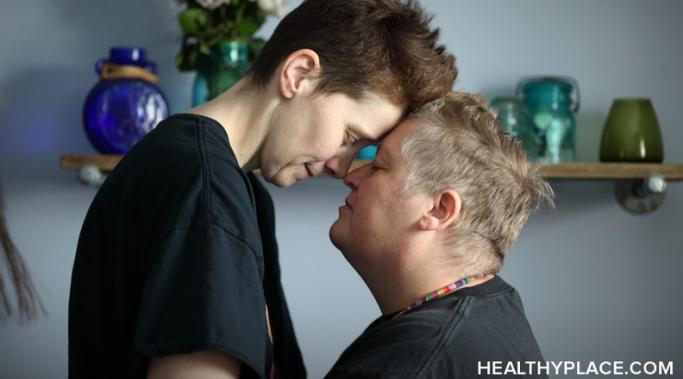It's a strange irony that the skills I learned from being part of the team here at HealthyPlace are the reason that I'm leaving my position. Hear me out, and I'll try to explain what I mean.
Parenting and Mental Illness
Something I started doing when my brother was first diagnosed with mental illness was personifying his mental illness symptoms. This might sound a little kooky but stay with me here.
In my job as a pediatric occupational therapist, I spend a lot of time focusing on parent education. I find that building a parental understanding of a child's condition is the single most important factor in improving that child's quality of life. I'm beginning to learn that the same is true in mental illness – the level of understanding and compassion that family (or other relevant supporters) have for a person's mental illness has a huge bearing on their experience.
It's very important to take other peoples' trauma seriously, but sometimes, families struggle to do so. I made a video explaining my experience with family trauma and gaslighting.
I can now say that I have experienced family trauma, although, for years, I was reluctant to use the word "trauma" in relation to anything about my own life or experiences. To me, that felt like a serious word that I didn't have the right to use unless I had fled a warzone or survived a natural disaster.
This blog post may be controversial to some, but the older I get, the more I understand that family estrangement can be necessary for mental health. While I am in close contact with the immediate family that raised me, I have made a conscious decision to cut contact permanently with other relatives. This was not a malicious decision but a considered one made with mental health in mind.
Explaining a family member's diagnosis to others can be scary because you never know how they're going to react. Sometimes it works out really well. For example, my fiancé couldn't be more understanding of my brother's chronic mental illness. Not only is he accepting of the way this affects our family's lives, he is also proactive in thinking of ways that we can better support my brother. Not everyone is like this, though, which is why explaining a family member's mental health diagnosis to others can be so challenging.
My brother recently expressed his fear that mental illness has made him a burden on our family. This completely broke my heart, and I was pained to tell him that it isn't true. If you need to hear that message too, let me remind you today -- mental illness does not make you a burden.
Family expectations can be draining for a lot of reasons. Depending on what kind of family you come from, there’s a whole bunch of different unwritten rules about the types of lives we “should” live. My brother’s mental illness challenged our family expectations in a major way, and when I reflect on it I see that he changed our family culture for the better.
Defining your role in mental health support can be tricky in a family situation, especially if you have some sort of professional healthcare background. I had recently qualified as an occupational therapist, and when my brother was diagnosed with chronic anxiety and depression, I put a lot of pressure on myself to be more than just a sister because of that. I wish I could take that back.









